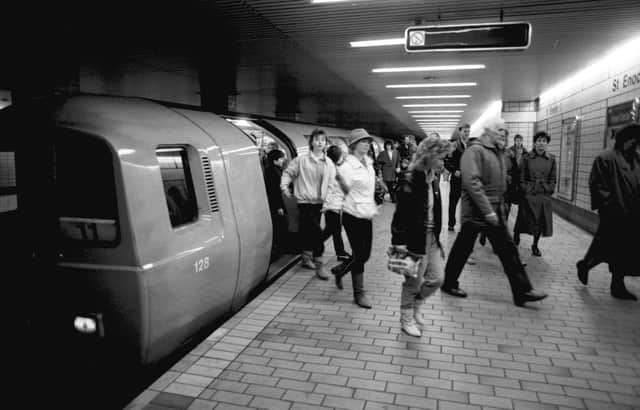For many Scottish towns and cities, the 1980s marked the last decade of municipal bus services as privatisation and deregulation swept the nation.
Margaret Thatcher’s Conservative government amended the Transport Act on two occasions, paving the way for local bus and national coach services to be provided by private firms.
With a raft of new firm eventually springing up, one of the first bus companies to secure privatisation was Lowland Scottish Omnibuses Limited. The company was created in 1985 as part of the reorganisation of the state-owned Scottish Bus Group in preparation for the deregulation of the bus industry the following year.
Other new bus companies created around this time in Scotland included, Clydeside, Kelvin, Stagecoach, Strathtay and Magicbus.
Providing a distinct brand for the British Rail network north of the border, ScotRail was established in September 1983, the company run by manager Chris Green. British Rail and ScotRail would go their separate ways in the 1990s following privatisation of the rail industry.
With the many rail closures and network cuts that followed the 1960s Beeching Report, cycling bodies such as Sustrans helped transform thousands of miles of the nation’s former track beds into new cycling routes.
But despite the increased eco-friendly move towards two wheels, a European Commission report condemned the state of the UK’s cycling policies, ranking Britain as one of the worst nations for cyclists in the bloc.
Air travel in and out of Scotland increased massively during the decade with millions more people taking holidays abroad with global business travel also on the rise.
In the late 1980s, Glasgow Airport underwent a £55 million expansion, increasing the terminal size by 70 per cent and now able to cater for 6 million passengers a year.
Focus was also on would-be air travellers in Scotland’s more remote regions. In 1984 the short-lived Highland Express Airways was formed, offering flights to London and New York via Glasgow Prestwick several times a week.
The number of car owners also shot up dramatically during the decade, and ambitious new road projects, such as the expansion of the M8 motorway and the Edinburgh City Bypass were constructed.
Formerly known as the A720, the Edinburgh City Bypass cost an estimated £72 and was built in sections between 1980 and 1989, providing motorists in the capital with significantly faster routes from one end of the city to the other.
Less bright, however, was the future of Scotland’s car manufacturing industry. As homegrown companies struggled to compete with overseas competition, closures were imminent.
One of the major losses for Scotland was the closure of the Linwood plant outside Glasgow. Famous for the production of the Hillman Imp series of vehicles from the 1960s onwards, the Linwood site ceased operation in 1981 following a review by Peugeot Talbot who had taken ownership of the plant from Chrysler UK.
Resulting in the loss of thousands of jobs, the Linwood plant’s sad closure was famously immortalised in song by The Proclaimers in their 1987 ode to enforced migration and industrial decline, Letter From America.
A message from the Editor:
Thank you for reading this article. We're more reliant on your support than ever as the shift in consumer habits brought about by coronavirus impacts our advertisers.
If you haven't already, please consider supporting our trusted, fact-checked journalism by taking out a digital subscription at https://www.scotsman.com/subscriptions.
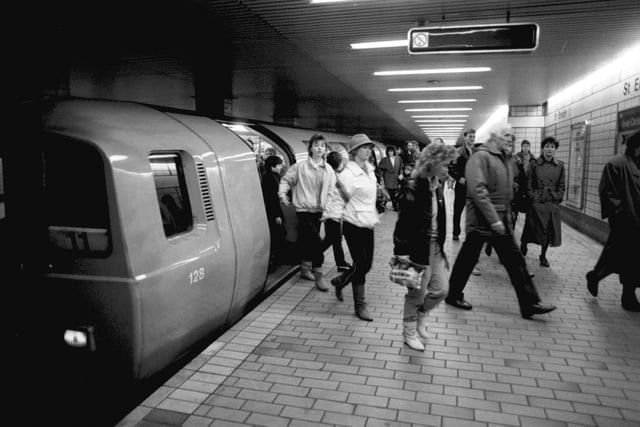
1. Like clockwork
Passengers leaving the subway train at St Enboch underground station in Glasgow, December 1986. Photo: Allan Milligan
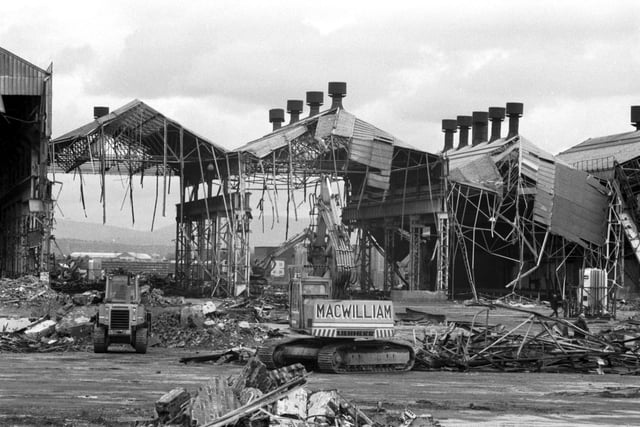
2. Linwood no more
The old car factory at Linwood being demolished in August 1985. Photo: Brian Stewart
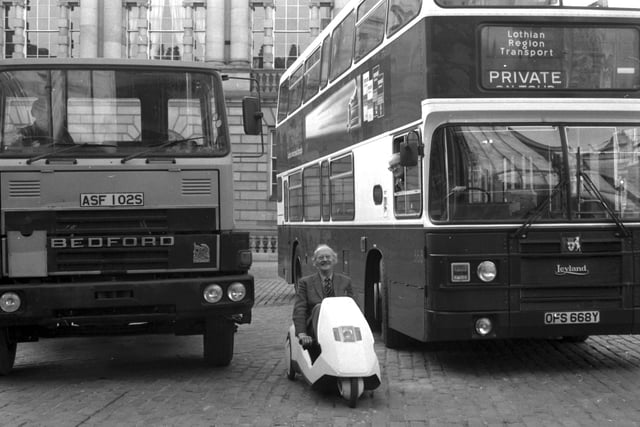
3. Sinclair C5
Edinburgh councillor Hugh Fraser parks his Sinclair C5 car between a bus and lorry in Parliament Square in January 1985. Photo: Jack Crombie
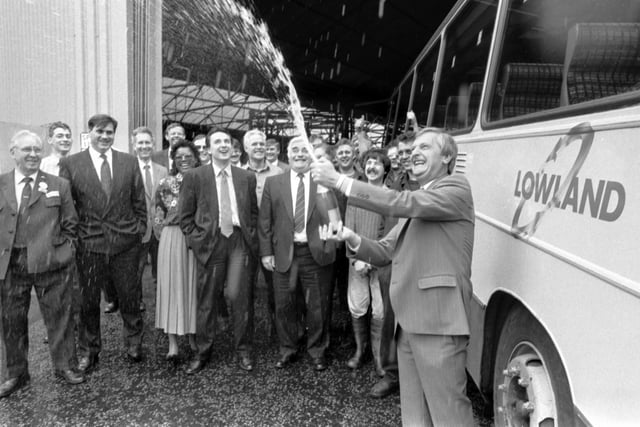
4. Privatisation
Lowland Scottish Omnibuses' boss Douglas Pelling breaks open the champagne to celebrate with staff at the news they are the first bus company to be privatised in June 1990. Photo: Allan Macdonald
